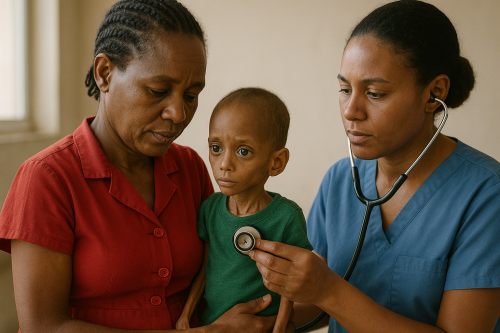 Access to clean water and basic sanitation remains a significant challenge in rural Kenya, where communities often rely on unprotected water sources such as rivers, ponds, and shallow wells. These conditions expose families—especially children—to waterborne diseases such as cholera, typhoid fever, dysentery, and parasitic infections. The burden is highest among young children, who face repeated diarrheal episodes that contribute to malnutrition, stunted growth, and early mortality.
Access to clean water and basic sanitation remains a significant challenge in rural Kenya, where communities often rely on unprotected water sources such as rivers, ponds, and shallow wells. These conditions expose families—especially children—to waterborne diseases such as cholera, typhoid fever, dysentery, and parasitic infections. The burden is highest among young children, who face repeated diarrheal episodes that contribute to malnutrition, stunted growth, and early mortality.
What We Do
Community Education on Water, Sanitation & Hygiene (WASH)
We train Community Health Workers and conduct outreach to:
- Educate households on safe water practices, proper handwashing, food hygiene, and latrine use
Disease Prevention & Surveillance
We work with public health facilities and local leaders to:
- Identify and monitor outbreaks of cholera and typhoid
- Provide referrals for treatment of persistent diarrhea and dehydration
- Support case documentation and household contact tracing
School & Household Hygiene Campaigns
In collaboration with schools and community groups, we:
- Distribute water purification tablets, soap, and educational materials
- Promote safe food handling, menstrual hygiene education, and water storage practices
- Conduct school-based hygiene training for children, caregivers, and teachers
Emergency Response in Outbreak Zones
During outbreaks, we mobilize our rapid response teams to deliver urgent hygiene supplies, public health messaging, and transport referrals to nearby clinics.
Why It Matters
Waterborne diseases are entirely preventable, yet they continue to take the lives of children in our communities due to poor infrastructure and lack of awareness. Each infection drains family resources, threatens child development, and can escalate into life-threatening dehydration if untreated. By investing in clean water practices, hygiene education, and community-level disease surveillance, we help families break the cycle of preventable illness and poverty.
“Clean water shouldn’t be a privilege — it’s the foundation of life, health, and dignity.”
— WPMHS Field Research Team
